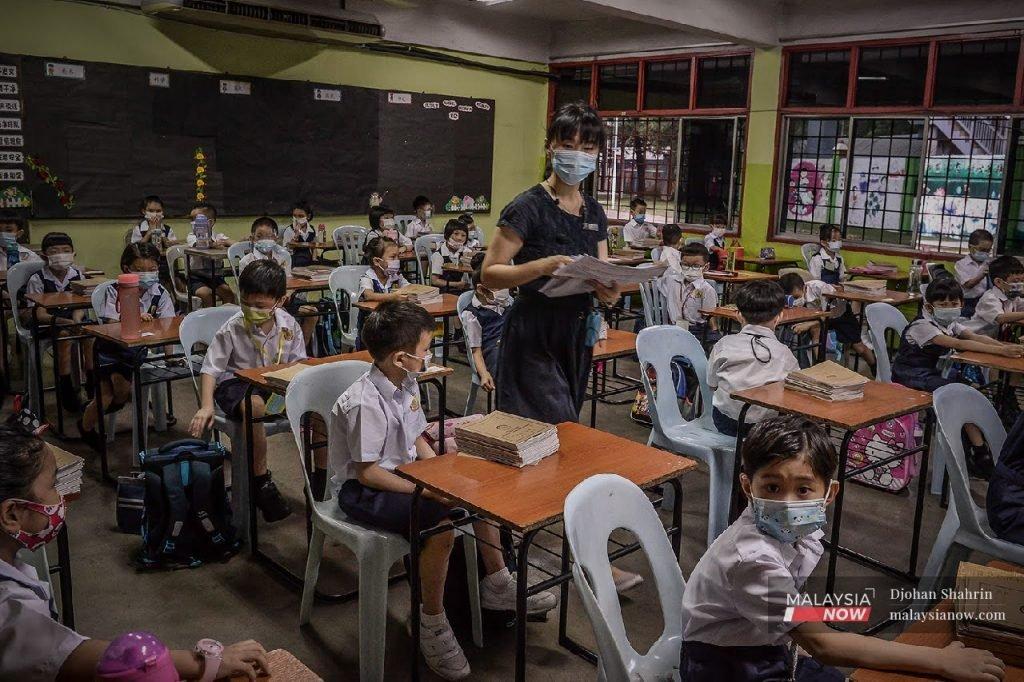Think again, Sarawak urges Putrajaya on reopening schools amid Delta concerns
The state education ministry says allowing schools to reopen in September could lead to more outbreaks as children below 18 have not been vaccinated.
Just In
Sarawak’s education ministry today urged the federal government to review its decision to reopen schools on Sept 1 given the high number of Covid-19 cases in the country.
Sarawak Education, Science and Technological Research Minister Michael Manyin Jawong voiced particular concern over the highly contagious Delta variant which has been blamed in part for the recent surge in infections, saying the more aggressive transmissions could lead to another outbreak in schools since those aged below 18 have not been vaccinated.
“Personally, I believe that schools should not reopen in September if cases of Covid-19 are still on the rise as there have already been positive cases detected among these children,” he told MalaysiaNow.
“However, the final decision rests with the education ministry in Putrajaya.”
While virus cases involving children in Sarawak make up only a fraction of hospitalised patients, new numbers reported on Tuesday showed that 31% or 260 out of 836 cases were below 18 years old.
Sarawak General Hospital also reported that some 20% of over 1,100 infections involved those in this age bracket.
State Assistant Education MinisterDr Annuar Rapaee had said that the authorities should consider including children aged 12 to 17 in the vaccination programme.
Annuar, who is a cardiologist, said this would be the best way to control any outbreaks in school settings, especially asymptomatic infections among children who would still be able to transmit the virus.
“Frankly speaking, I am more concerned about vaccination for those aged 12 to 17,” he said.
“To achieve herd immunity we need to have more people vaccinated. There is no other way out. We must include this group.”
He acknowledged concerns over rare cases of heart inflammation among children due to reactions to the vaccine but said the benefits of vaccination far outweighed the risk, especially given the emergence of more contagious virus variants.
He said the risk of developing myocarditis or pericarditis was small as only 0.00004% of cases per every one million doses of vaccine given to males aged 12 to 29 resulted in these complications.
“Yes, there are concerns about complications from the side effects. But (it is) 40 cases out of one million and it mainly happens among males aged 19 to 29. Females have a smaller chance of developing myocarditis.”
However he also acknowledged that long-term effects remain unclear.
Subscribe to our newsletter
To be updated with all the latest news and analyses daily.
